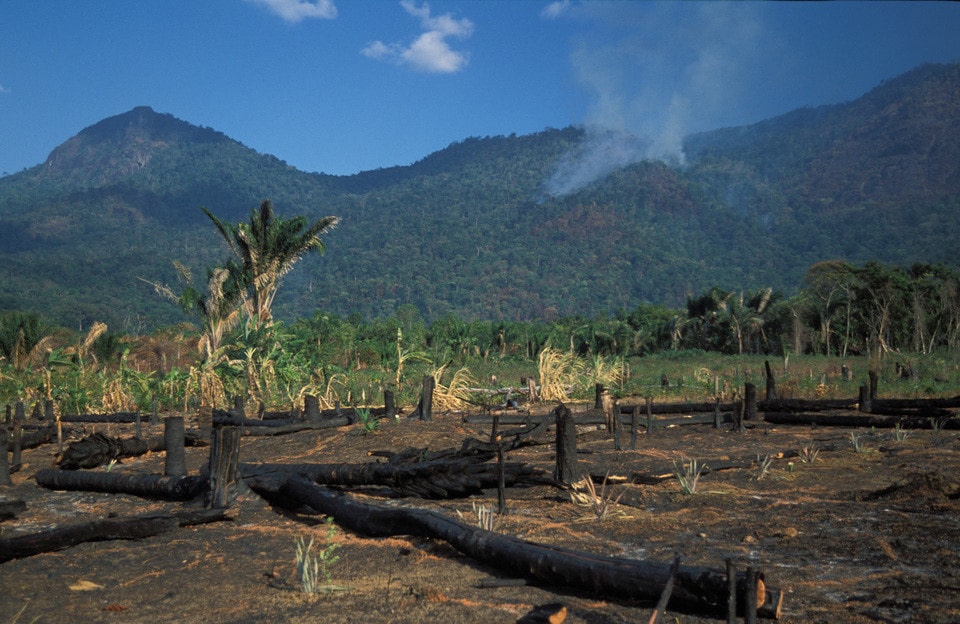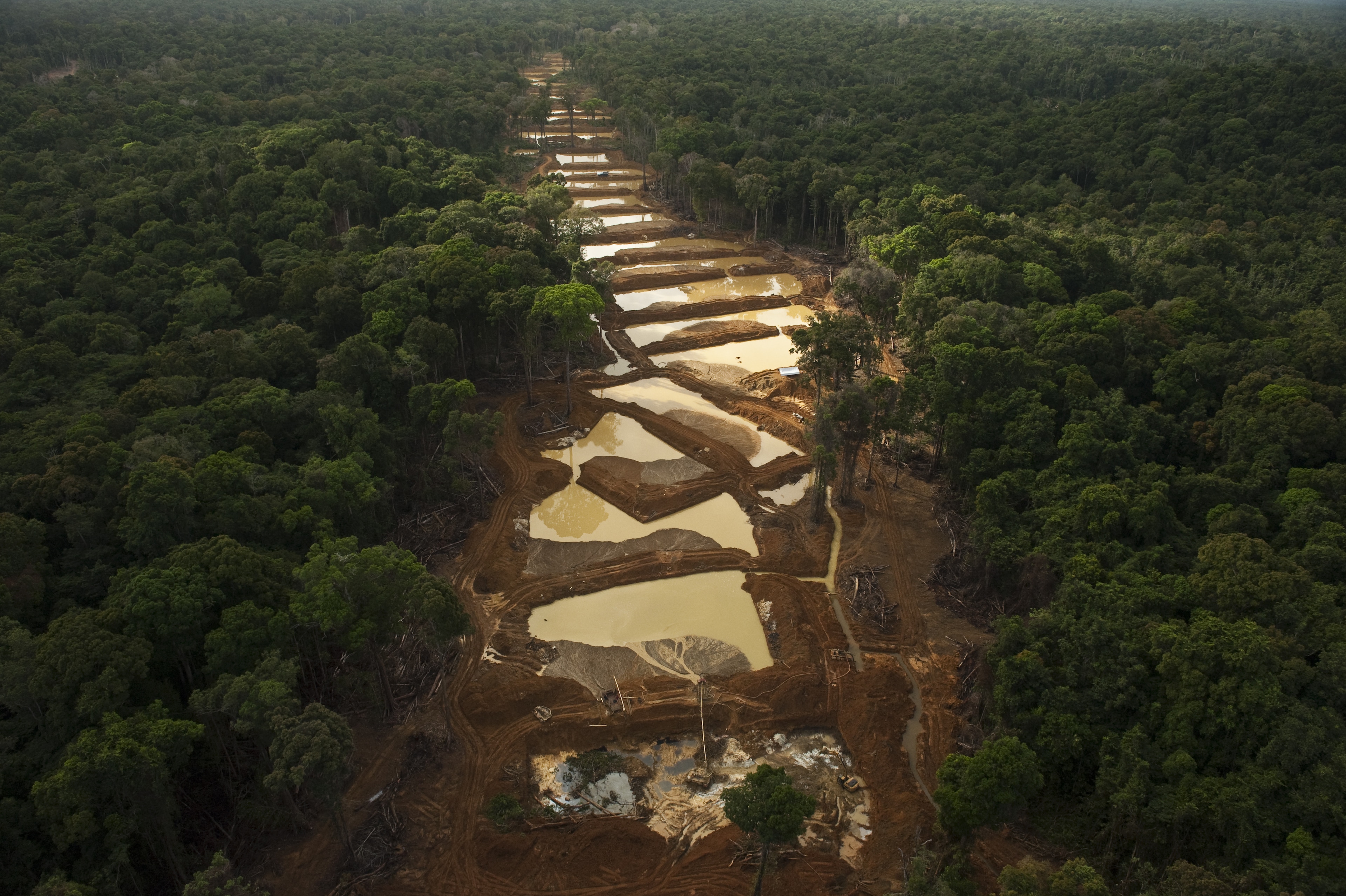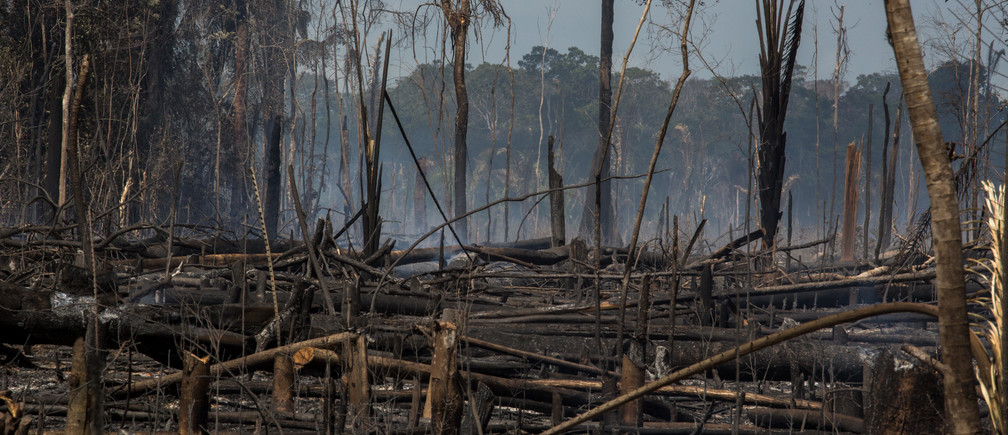- There is a misperception that nature is getting a break during the COVID-19 pandemic.
- Instead, many rural areas in the tropics are facing increased pressure from land-grabbing, deforestation, illegal mining and wildlife poaching.
- To respond to this crisis of human health, the economy, the climate and biodiversity, we need solutions that build resilient societies for the long term.
In the midst of the COVID-19 pandemic, global media is reporting on a “silver lining” of the crisis: that nature is getting a break as people are forced to stay home. Penguins on the streets of Cape Town, a kangaroo roaming around Adelaide and a crab-eating fox exploring Bogotá suburbs are just a few examples. These stories are coupled with reports of clean air over Delhi, Seoul and even Los Angeles.
However, these reports give the misleading impression that Mother Earth stands to benefit from the restrictions on movement imposed on people around the world, especially in cities.
Have you read?
- Nature’s comeback? No, the coronavirus pandemic threatens the world’s wildlife
- The world’s ecosystems are at risk – this is what countries are doing to save them
Unfortunately, outside urban areas, the situation is very different. In rural areas, there is less wealth and the main savings account for people is nature, with hunting, fishing and logging necessary to provide food and support livelihoods. People who moved to cities and have now lost their employment and income opportunities due to the quarantines are returning to their rural homes, further increasing the pressure on natural resources while also increasing the risk of COVID-19 transmission to rural areas.
At the same time, opportunistic actors and criminal groups involved in land-grabbing, deforestation, illegal mining and wildlife poaching are taking advantage of the fact that governments are focused on COVID-19 instead of on conservation. There are reports of increased deforestation in Asia, Africa and Latin America. Areas dependent on tourism to fund conservation – such as community conservancies in Kenya and iconic natural World Heritage Sites like the Galápagos, Ecuador and the Tubbataha Reef in the Philippines – are facing reduced resources as tourism has come to a halt. Meanwhile, illegal mining for gold and precious stones in Latin America and Africa is on the rise, as prices spike and protected areas are left unguarded.

These increased pressures on nature and rural areas are expected to persist until economies rebound and governments are able to refocus on conservation. This gives the false impression that the protection of nature is a secondary concern in controlling disease outbreaks like the current pandemic. However, the failure of protection may be the cause of this and future outbreaks. Land use change is a major driver of disease transmission from wildlife to people. Species threatened by exploitation and habitat loss are twice as likely to be sources of zoonotic disease compared to other threats. As the biologist Thomas Lovejoy noted, “This pandemic is the consequence of our persistent and excessive intrusion in nature and the vast illegal wildlife trade.”

Governments in countries experiencing upticks in deforestation, illegal mining and poaching urgently need to maintain enforcement efforts, even during the COVID-19 pandemic. Equally important, countries must start planning for rebuilding their economies in a way that fosters green structural transformation, including through long-term commitments to public spending and pricing reforms. After restrictions are lifted, both governments and development financing institutions should prioritize stimulus efforts that have high economic multiplier effects and that reduce carbon emissions. A recent study based on input from central bankers and ministries of finance identified several priority policies: natural climate solutions and the protection of carbon-rich ecosystems like mangroves, tropical forests and peatlands, and rural support for ecosystem restoration. Such policies are especially beneficial for tropical countries, where land use change is often the major source of carbon emissions. Such investments would have additional benefits for biodiversity and reduce the risk of zoonotic disease outbreaks, too, thereby addressing an important root cause of the current pandemic.
It is equally important that climate and biodiversity stay at the top of the agendain 2020 and beyond, and that leaders leverage every opportunity to maintain the momentum. Every effort must be made to ensure that the global efforts under the United Nations (UN General Assembly Nature Summit, UN Framework Convention on Climate Change, UN Convention on Biological Diversity) are not unduly delayed; meetings could take place online if necessary. Countries are stronger working together, and international cooperation is the best opportunity to resolve future existential threats. coronavirus, health, COVID19, pandemic
What is the World Economic Forum doing to manage emerging risks from COVID-19?
The first global pandemic in more than 100 years, COVID-19 has spread throughout the world at an unprecedented speed. At the time of writing, 4.5 million cases have been confirmed and more than 300,000 people have died due to the virus.
As countries seek to recover, some of the more long-term economic, business, environmental, societal and technological challenges and opportunities are just beginning to become visible.
To help all stakeholders – communities, governments, businesses and individuals understand the emerging risks and follow-on effects generated by the impact of the coronavirus pandemic, the World Economic Forum, in collaboration with Marsh and McLennan and Zurich Insurance Group, has launched its COVID-19 Risks Outlook: A Preliminary Mapping and its Implications – a companion for decision-makers, building on the Forum’s annual Global Risks Report.
Companies are invited to join the Forum’s work to help manage the identified emerging risks of COVID-19 across industries to shape a better future. Read the full COVID-19 Risks Outlook: A Preliminary Mapping and its Implications report here, and our impact story with further information.
The COVID-19 pandemic demonstrates how much we depend on one another – one humanity living on one planet – for our health systems as well as for our food systems and supply chains. This is the moment to rise to the challenge of collaborative leadershipand work together to emerge from this crisis with a global economic reset. People and naturemust be at the center of this reset, for redistribution, regeneration and restoration.
Prosperity for people and the planet is possible only if we make bold decisions today, so that future generationscan survive and thrive.


Recent Comments